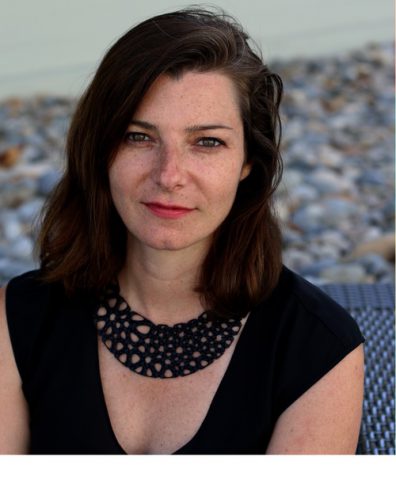Antar-LookingOutwards01

Maria Scileppi is a the founder of the creative agency 72U, focussing primarily on the crossroads between creating narratives between art and technology. However, her true skill is in being comfortable with being uncomfortable. Scileppi is a fearless experimenter and thrives on multidisciplinary collaborations.
Maria attended The School of the Art Institute of Chicago, then went on to become an associate professor at Chicago Portfolio School, before venturing to Venice, California where she is now based.
Within listening to the first few minutes of Scileppi’s 2015 Eyeo presentation, I was completely hooked. She is a patient, ambitious, and exciting creative – a truly inspirational woman that I know I could learn a great deal from.
During this talk Scileppi I really tried to pay attention to her tone, and I noticed that she crafter her speech very effectively. Her overarching themes were collaboration and experimenting, and she tells the story of how these tools are incredibly powerful by telling smaller stories, similar to chapters. While listening to the talk, it’s clear that she is a seasoned story teller, even from the tone of her voice. She speaks slowly and always explains her vocabulary, even if it may seem self-explanatory.
Her stories about life at 72U shed light on the incredible benefits of working collaboratively, and what it takes to do so. She notes that it may not be applicable to every project or every person. It works best when there’s high emotional intelligence, and an openness to fail and learn. The idea of teamwork will make a lot of people cringe, but Scileppi beautifully explains how much potential there can be (and backs it up with a project about a chef and a sword-swallower).
“When you collaborate with another human, you extend your reach as a create. Because the first thing two collaborators make is this third space, and this third space is where the magic happens.”
She also discusses the idea of process and being human. In design, professors, clients, and recruiters are often far more interested in seeing the process than the final product. Were the creative decisions arbitrary or intentional? Was the road to this product bumpy or successful? What was the first idea and is any part of it in the final product? What did you learn about yourself and about your work? These are the types of questions that can be answered through reflection and process documentation.
“Since then a light went on inside of me. And I switched from being a maker focussed on an object or an end result, to a maker focused on the process of making, and I really like this space because it feels really human.”
Maria Scileppi is a creative that now has a permanent spot on my radar. I’ve already looked into the applications for spending 12 weeks at 72U. Being uncomfortable and vulnerable is hard to do in any circumstance, it can be even harder professionally. In your personal life, you’re putting yourself and your emotions on the line. In the professional world you’re putting not only your reputation, but also the time and money of others. Maria explains that so long as you can learn from your mistakes, grow as a creative, and continue to collaborate and experiment, then there’s nothing to fear.